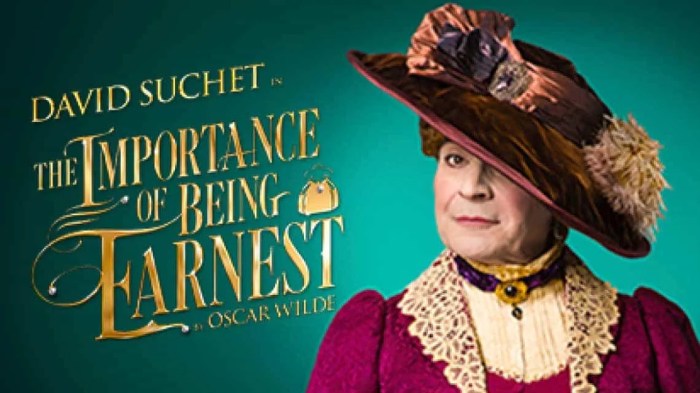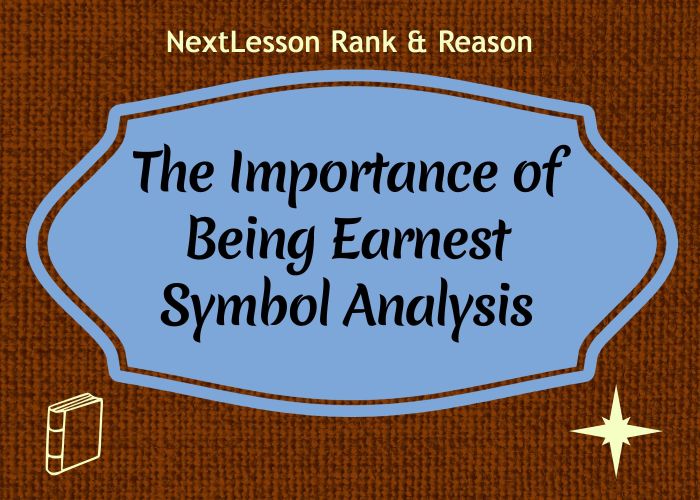Symbols in the importance of being earnest – In Oscar Wilde’s celebrated play, “The Importance of Being Earnest,” symbols permeate the narrative, enriching its exploration of identity, morality, and societal expectations. These symbols, ranging from the protagonist’s assumed name to seemingly innocuous objects, reveal the characters’ inner conflicts and the play’s underlying themes.
From the outset, the play’s title introduces a central symbol: the name “Ernest.” This moniker represents both the protagonist’s true self and the facade he constructs to escape social constraints. The irony of the name’s association with honesty highlights the characters’ duplicity and the play’s exploration of the gap between appearance and reality.
Symbolism in the Importance of Being Earnest: Symbols In The Importance Of Being Earnest

Oscar Wilde’s “The Importance of Being Earnest” is a witty and satirical play that explores the themes of identity, morality, and social hypocrisy. The play is filled with symbols that contribute to its overall meaning and impact. These symbols include the name “Ernest,” the character of Bunbury, the cucumber sandwiches, the handbag, masks and disguises, and the role of nature and the garden.
Symbolism of the Name “Ernest”
The name “Ernest” is a central symbol in the play. It is the name that Jack Worthing adopts when he wants to escape his responsibilities in the country and pursue a life of pleasure in the city. The name “Ernest” is significant because it means “serious” or “earnest.”
This is ironic, as Jack is anything but serious when he is using this name. He is actually quite frivolous and irresponsible.
The use of the name “Ernest” also highlights the theme of identity in the play. Jack is able to create a completely different persona for himself when he is using this name. He is able to escape his true self and become someone else.
The Importance of Bunbury, Symbols in the importance of being earnest
Bunbury is a fictional character that Jack creates in order to get out of social obligations. Bunbury is always sick, and Jack uses this as an excuse to avoid doing things he does not want to do.
Bunbury is a symbol of freedom and escapism. He represents Jack’s desire to escape from the confines of his social life. However, Bunbury also has negative consequences. Jack becomes so dependent on Bunbury that he is unable to face his responsibilities head-on.
FAQ Summary
What is the significance of the cucumber sandwiches in the play?
The cucumber sandwiches symbolize the characters’ superficiality and preoccupation with appearances. Their obsession with such trivial matters highlights the emptiness of their social lives.
How does the handbag represent morality in the play?
The handbag serves as a symbol of morality, as its contents reflect the characters’ true nature and hidden secrets. Its disappearance and reappearance symbolize the characters’ struggles with morality and the consequences of their actions.
What is the role of masks and disguises in the play?
Masks and disguises represent the characters’ desire to conceal their true identities and motives. The irony lies in their attempts to deceive others while revealing their own true selves.



